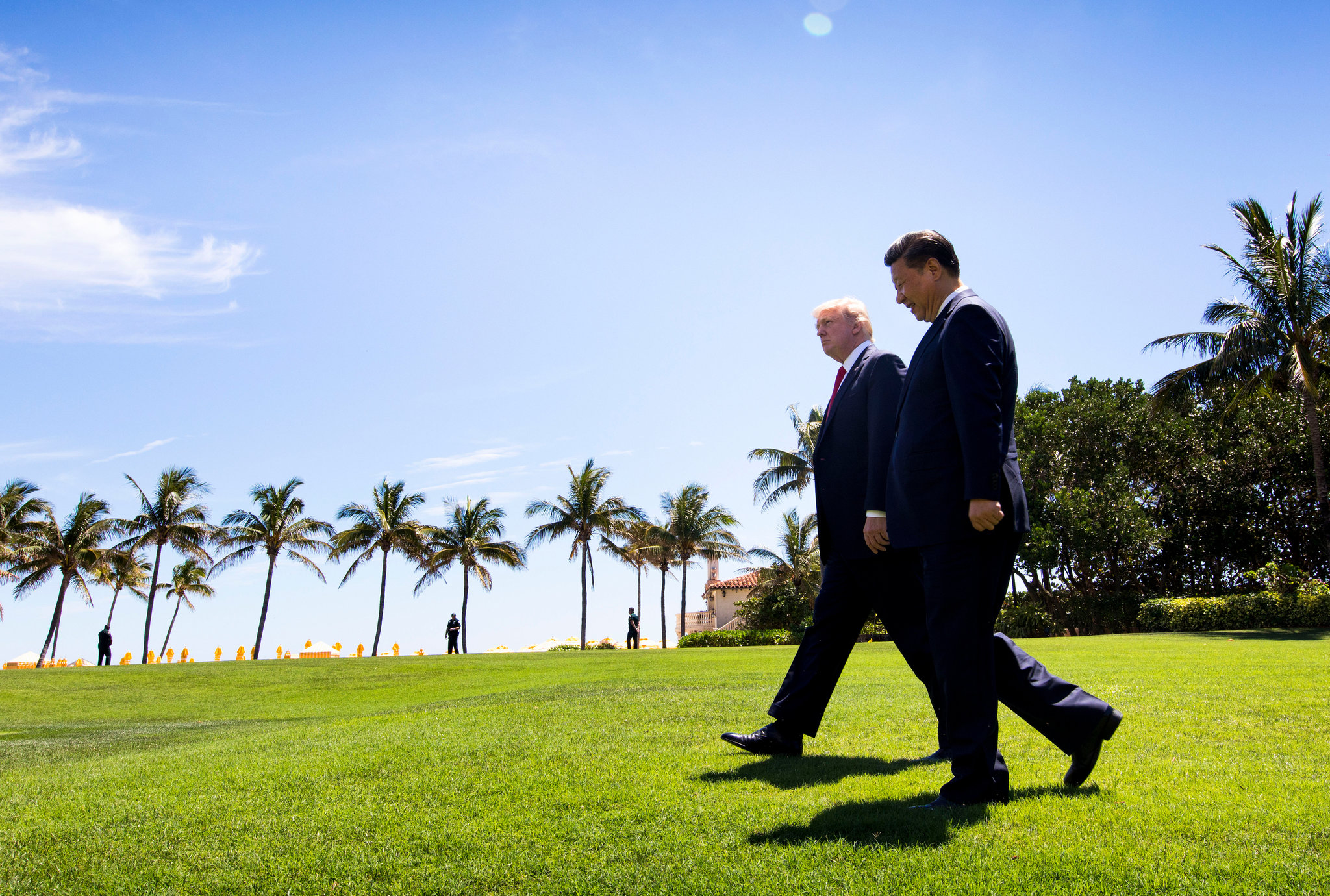Media Report

- The New York Times reports: "The White House is preparing to open a broad investigation into China's trade practices, according to people with knowledge of the Trump administration's plans, amid growing worries in the United States over a Chinese government-led effort to make the country a global leader in microchips, electric cars and other crucial technologies of the future. The move, which could come in the next several days, signals a shift by the administration away from its emphasis on greater cooperation between Washington and Beijing, in part because administration officials have become frustrated by China's reluctance to confront North Korea over its nuclear and ballistic missile programs. The investigation will focus on alleged Chinese violations of American intellectual property, according to three people with a detailed knowledge of the administration's plans. The people spoke on the condition of anonymity because the deliberations were not yet public. Any move by the Trump administration to punish China over its trade practices would raise tensions within the world's largest trade relationship between two countries."
- Foreign Policy comments: "A remote corner of the Himalayas has become the unlikely ringcene of a major power standoff between China and India. Now entering its seventh week, the standoff centers on the tri-junction border shared by China, India, and Bhutan referred to as Doklam in India and Donglang in China... To China, Doklam is its own sovereign territory based on treaties, tacit agreements, and de facto control. India considers Doklam a disputed territory and contends that any changes to the territory's jurisdiction must be made in consultation with India per a 2012 understanding between the three parties... Despite the challenges, there are several possible resolutions in sight if both sides — and third parties trying to defuse tension — strive to understand what might seem like mutually incompatible perspectives... For example, India could find alternative ways to grant Beijing a "win" by softening its position on China's "One Belt, One Road" project, both sides could pursue international arbitration, or both sides could wait until harsh winter weather conditions force both sides forces to quietly draw down. Another "off ramp" to deescalate the crisis is a back-channel agreement with Bhutan appearing as the public arbiter, allowing both sides to save face. The most obvious solution, as many have identified, would be a mutual withdrawal and return to pre-June 16 positions."
- CNN reports: "Tim Cook on Tuesday addressed the controversy over his company's recent removal of some virtual private network (VPN) apps from its China App Store, reiterating that the U.S. company was simply complying with Chinese regulations. 'We're hopeful that over time the restrictions we're seeing are lessened, because innovation really requires freedom to collaborate and communicate,' Cook said during Apple's (AAPL, Tech30) latest earnings call. 'We believe in engaging with governments even when we disagree,' he said. China has in recent months strengthened its massive internet censorship apparatus, which is often referred to as the Great Firewall. It has partially blocked popular messaging apps like WhatsApp and stepped up its censorship of images deemed politically sensitive... Apple's decision to remove the VPN apps in China was widely criticized, with many saying it was aiding and abetting Chinese censorship."
Calendar
- 2017-08-01 China Takes Tough Line on Sovereignty Amid Territorial Spats With Neighbors
- 2017-07-31 Trump plan on China may come as soon as this week
- 2017-07-30 China Shows Off Military Might as Xi Jinping Tries to Cement Power
- 2017-07-28 Value of U.S. deals in China sinks on rising trade tensions
- 2017-07-27 U.S. Pacific Fleet commander: I'd launch nuclear strike against China if Trump ordered it
- 2017-07-26 US and China report progress on new North Korea sanctions
- 2017-07-25 China fires back at US accusations over aerial encounter
- 2017-07-24 In China, Herd of "Grey Rhinos" Threatens Economy
- 2017-07-23 Op-Ed: China will cooperate to narrow US trade deficit
- 2017-07-21 China's navy expands reach: Ships in Baltic for drills with Russia
News
- The New York Times Trump Administration Is Said to Open Broad Inquiry Into China's Trade Practices
- CNN Apple's CEO says he hopes China's intensified crackdown on internet access is only temporary
- Reuters Trump close to decision on addressing Chinese trade practices
- Fox News US may get tougher against China trade policies
- CNN Tillerson says US is willing to talk to North Korea
- CNN Trump's biggest nightmare? China and Russia's newfound friendship
- CNBC Apple CEO Tim Cook defends decision to remove VPN apps in China
- Quartz The surprise location of North Korea's latest missile test is making the US and China nervous
- CNBC Apple's China revenues fall 10% as analyst claims iPhone has 'gone out of fashion'
- LA Times Man opens fire outside Chinese consulate before turning gun on himself, police say
- Vox China is perfecting a new method for suppressing dissent on the internet
- CBS News China's tech-transfer demands may spark pushback from U.S.
- CNN How the Nanjing Yangtze River Bridge changed China forever
- Los Angeles Times China's Gobi Desert feeds Yosemite National Park's forest, study says
Commentary
- Foreign Policy How Long Can China and India Avoid War in the Himalayas
- The Cato Institute Apple, China, and the Wages Of Tyranny
- The Wall Street Journal U.S. Plans Measures Against China Trade Practices
- The National Interest Japan Could Benefit from China's One Belt, One Road Plan
- The Diplomat China, India, and Israel's Strategic Calculus
- Forbes China's Hambantota Deal Is Bad News For Both Pakistan And India
- Market Watch This is why U.S. investors should be worried about China